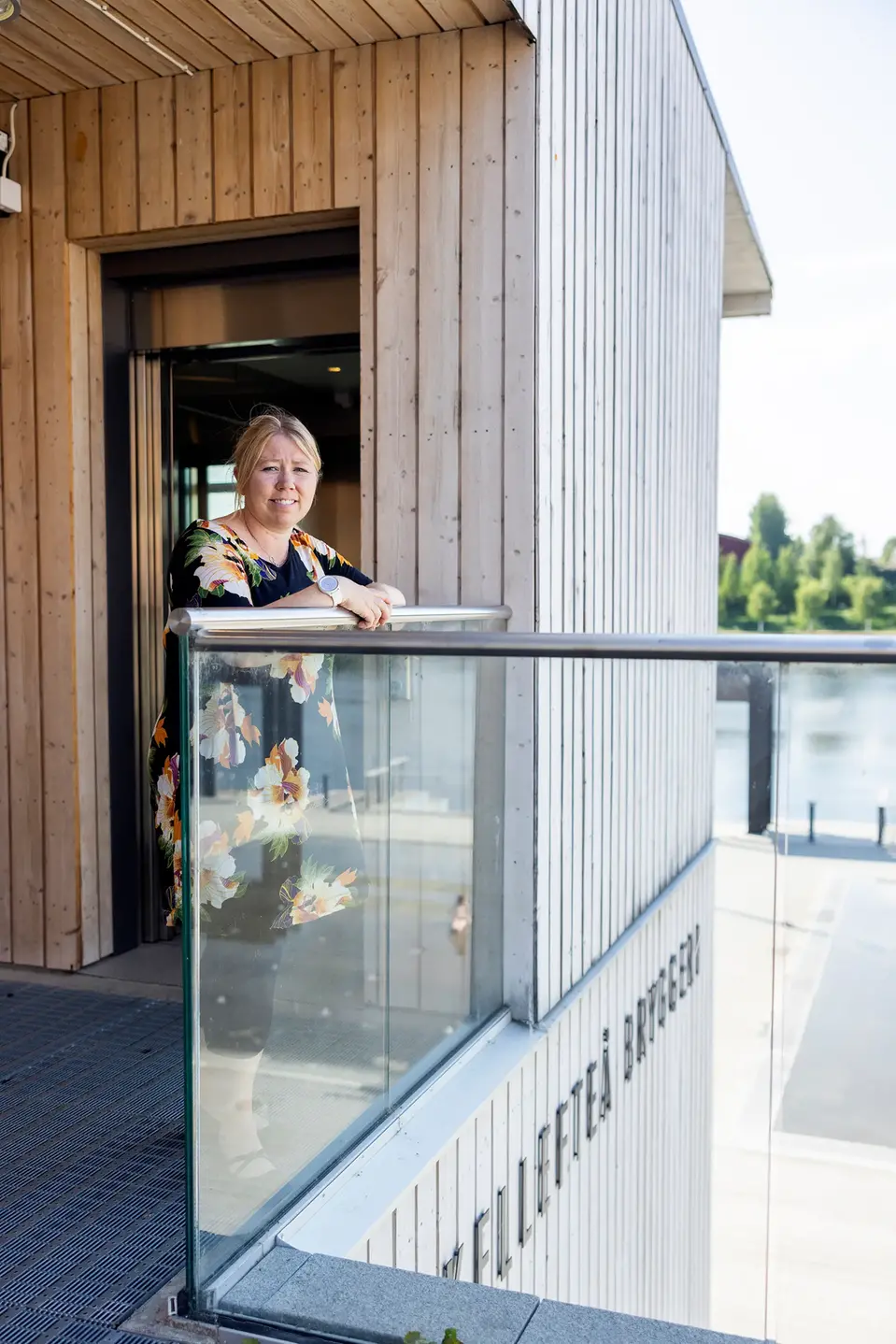Social sustainability
How Skellefteå became Europe's most accessible city
Skellefteå is Europe's most accessible city. At least according to the European Commission, which has awarded the municipality its annual Access City Award .
- A great honor and a prestigious prize. Nowwe must continue to work with theseissues in a structured way,says Elin Brännström, who is participation coordinator at Skellefteå municipality .
It was in November 2022 that Skellefteå received the award for its outstanding efforts to become an accessible city. Accessibility is about everyone being able to get around and take part in what a city has to offer. It should not matter whether you have a disability or not.
The prize is the result of long and determined work on accessibility in the municipality.
- It is above all a prize for everyone in the disability rights movement who has worked for many years to make Skellefteå more accessible, says Elin Brännström.
As participation coordinator, she is the link between the disability rights associations and the municipality, and works with the associations in a structured way via the Council for the Prevention of Disability (RÅFF) and in the municipality's various projects. There is also an accessibility advisor who works with physical accessibility and practical guidance. Elin believes that unity on accessibility issues is another key to success.
- It is a success factor that we have had a political consensus that has prioritized these issues for many years and that it has been anchored in the functional rights policy strategy "A Skellefteå for all". In this way, we have come a long way!
In a growing Skellefteå, the municipality is based on something called universal design. It's about creating solutions that work for as many people as possible right from the start. Then you include more people and do not have to make adaptations afterwards. This may involve, for example, setting accessibility requirements in procurements or developing solutions for buildings, IT systems and transportation that work for as many people as possible.
- "Building for everyone is something that benefits the whole of society, not just those living with disabilities," says Elin.

The municipality has also held compulsory training on the rights of people with disabilities.
- 'It's a big statement that everyone should know these issues,' she says.
So how does accessibility affect everyday life for the people of Skellefteå? Elin Brännström says that it is mainly noticeable for those who have a disability themselves. But the accessibility work is visible, for example, at Älvbrinken, where there is an outdoor elevator, tactile maps and trails. Outside Sara Kulturhus, accessibility is also noticeable, where the disability rights associations have been involved from the beginning to create an area that works for as many people as possible.
- "This is especially noticeable in the newer places, where we try to include these perspectives from the beginning," says Elin.
Now she hopes that the municipality can continue to work with issues of accessibility and participation in a structured way. And that they will see an economic value and competitive advantages in creating, building and doing things for everyone and not just for the norm.
- In many ways, we have come a long way in comparison with other Swedish and European cities. But we still have a lot of work to do, and this is an ongoing process. We will never be completely done with it," says Elin Brännström.
Facts: Accessible Skellefteå.
Here are some of the things Skellefteå has done to become a more accessible city:
- Heated pedestrian streets.
- Innovative IT solutions (TIDA app and AR app in Sara cultural center).
- A half-time position that trained people with disabilities in digital technology for two years.
- An SMS service for people with visual impairments to inform them about road works and possible obstacles.
- Accessible public transport with easy-to-board buses, ramps, text screens and voice announcements.
Facts: Access City Award.
Launched in 2010, the Access City Award rewards European cities that have demonstrated best practice and made efforts to ensure equal access to housing, public transport, information and communication technologies and other services for people with disabilities and older citizens.
The win means more than SEK 1.6 million in prize money for Skellefteå municipality. Of that sum, SEK 1.1 million will be used to build an experiential exhibition at the Exploratorium. The idea is to highlight various disabilities so that children and young people can gain greater insight into what it is like to live with a disability. In addition to the experiential exhibition, the prize money will go to the municipality's disability rights associations. It is at least SEK 450 000 and they can apply for the money now. SEK 100 000 will also be used for lectures in the field of disability rights.
Source: European Commission.
Sidinformation
- Senast uppdaterad:
- 12 March 2024

